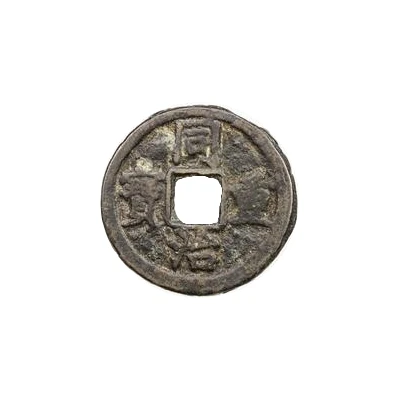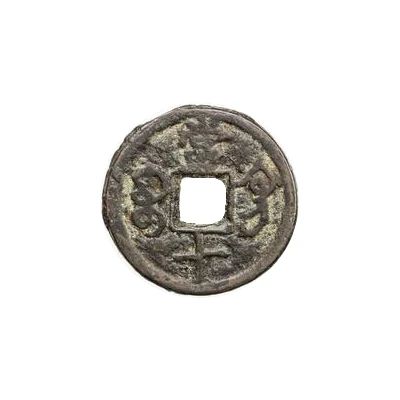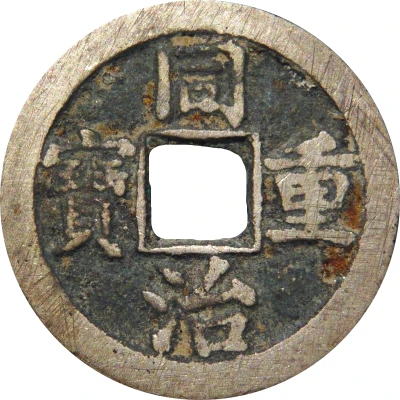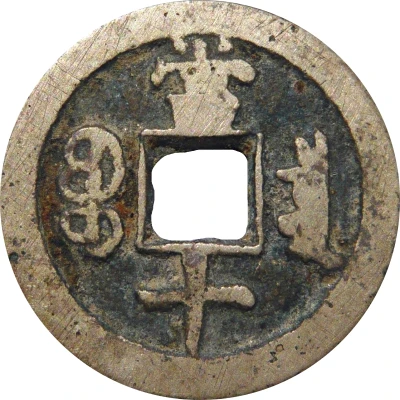10 Cash - Tongzhi Zhongbao; Boo-gung; small type ND
| Brass | - | 25 mm |
| Issuer | Empire of China |
|---|---|
| Emperor | Qing dynasty › Tongzhi (同治帝) (1861-1875) |
| Type | Standard circulation coin |
| Years | 1862-1864 |
| Value | 10 Cash |
| Currency | Cash (621-1912) |
| Composition | Brass |
| Diameter | 25 mm |
| Shape | Round with a square hole |
| Technique | Cast |
| Orientation | Medal alignment ↑↑ |
| Demonetized | Yes |
| Updated | 2024-10-03 |
| Numista | N#226533 |
|---|---|
| Rarity index | 95% |
Reverse
Two Manchu words (read vertically) separated by the hole, all with one Chinese ideogram above and one below.
Scripts: Chinese (traditional, regular script), Mongolian / Manchu
Lettering:
當
ᠪᠣᠣ ᡤᡠᠩ
十
Translation:
Dang Shi / Boo-gung
Value 10 / Boo-gung
Edge
Plain
Comment
This mint closed in 1864 and never re-opened.Interesting fact
One interesting fact about the Standard circulation coin 10 Cash - Tongzhi (Zhongbao; Boo-gung; small type) ND (1862-1864) from Empire of China made of Brass is that it was designed by a French engraver named Charles Fournier. Fournier was hired by the Chinese government to create a new currency that would be more modern and secure than previous versions. The result was a coin that featured a unique blend of traditional Chinese design elements and Western-style engraving techniques. The coin's design includes a portrait of the Emperor Tongzhi, as well as various symbols and characters that represent the Chinese government and culture. Despite its interesting design, the coin was not widely accepted by the Chinese people and was eventually replaced by other currency designs.



